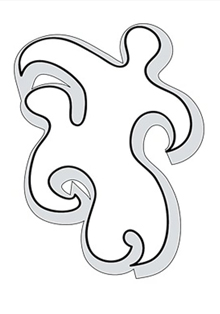Angel Ballesteros
Institute of Ceuta Studies
A friend called me a few days ago from La Rioja, Argentina: Carlos Menem was already 90 years old, Carlitos, remember, he was very ill. I sent him my best wishes in a press article and this February 14, he died.
When, after having promoted the incipient Spanish cooperation as first director with Africa, Asia and Oceania, “with great efficiency, dedication and enthusiasm”, touring African countries, especially the Portuguese-speaking ones, the Arab world and Eastern Europe starting with Moscow, I went as consul general to Cordoba, here I must add as well as in La Rioja, Argentina, with all that this entailed, in August 1988 there was an unprecedented situation, which gave professional appeal to that somewhat anodyne destination. For the first and perhaps unrepeatable time, the two candidates for the presidency of the nation were in the same consular demarcation, in the Northwest, seven provinces with an extension larger than Spain, with headquarters in Cordoba “the learned”, where the radical Eduardo Angeloz was governor, an effective politician, with a European style honoring his Swiss origin, and favorite for the elections against the Peronist Carlos Menem, of Syrian origin, governor of La Rioja, a backward province in the north. “Ché, pibe, where is La Rioja”, I rolled down the window while my driver was getting desperate on those dusty roads: “You are in La Rioja, sir” a very dignified young man answered me.
The government house was a match and the austere office, presided over by the photo of Perón, “the general” as Menem always referred to his idol, and the bust of Eva Duarte, did not even have a small desk. The twice governor had big, striking sideburns in homage to Facundo Quiroga, liquidated like so many of those aspiring caudillos, in the ambush of the day. And my visit, not too usual, was pleasant for him and even more so when I heard that in Spain, a country I had the impression of not being too much imposed on, Perón’s wheat and meat had helped in difficult times. I glanced around at the people crowding the steps of the building. “These are my people and with them we are going to win”, I was assured by that patient and ceremonious politician as a good descendant of Arabs, and above all endowed with a special empathy that would allow him throughout the decade he governed Argentina, from 89 to 99, to connect with ease and cordiality with his interlocutors. It is famous the phrase of his chancellor Di Tella, “carnal relations” with presidents Bush Jr. and Clinton. In Spain, with that Peronist and natural ambivalence in his case, Gonzalez, a socialist, Aznar, a conservative, and Juan Carlos I, were among his invariable friends.
I had begun my introductory visits to the governors of my district in La Rioja. It did not take me long to conclude that Menem, with those unique attributes for the political game, undoubtedly charismatic, in view of the enthusiasm he aroused among his followers with his elementary “Follow me, I will not let you down”, and given the critical economic situation with the radical administration, had more possibilities than the polls, perhaps somewhat inertial. The climate of popular dissatisfaction, gripped by the galloping hyperinflation, plus the lacerating memory of the Falklands crisis only six years before, did not seem to support the radical option exclusively, and this without mentioning the always marked Peronist tradition. From my professional point of view, he was a little known and less visited candidate in his northern redoubt, who only needed to relate more at a national level to assert himself. In other words, I conveyed to my embassy in Buenos Aires that, although I had just arrived, I felt empowered to maintain that the general opinion in favor of Angeloz could be nuanced. Moreover, watching the meeting from the front row due to the proximity of the two candidates, my semi-stated prognosis was the opposite: Menem would win. It was necessary to refine in a subject whose immediate translation, apart from politics, lay in the immense and rich Argentine market, avid of foreign capital.
Only two months later, I was right in my predictions, the majority was wrong in theirs and Menem won by a sufficient 43 to 37. And he governed for a whole decade, the first in democracy, admittedly unequal, in which the second part had more shadows than lights. “In spite of his defects, and I ended up breaking with him, he introduced the country to progress and has been the best president in democracy”, said Domingo Cavallo, chancellor and later at the head of finances executing the “one peso, one dollar” parity. I met Cavallo in his house in Córdoba, and as a good economist he asked me about the honorary consuls, in order to promote them to save money in the attention to his numerous compatriots scattered around “the wide and foreign world”. And he dedicated a book to me “out of gratitude for his work and special affection”.
Beyond value judgments on the long period of Menem’s government, here, in this in memoriam Menem/Spain, what should be emphasized is that our country became the largest investor in Argentina, a condition that, as many have also pointed out, we have not had again.
Rest in Peace, Carlos Saúl Menem, politician to the end.
ps. The government did not appoint me ambassador: the first condition for a representative is to be pleasing to the head of state. Nor is it still not doing so now, and it is much more important, to accredit me, as it has been asked, to cooperate with the United Nations in order to contribute to put an end to the Saharawi drama.
© All rights reserved






